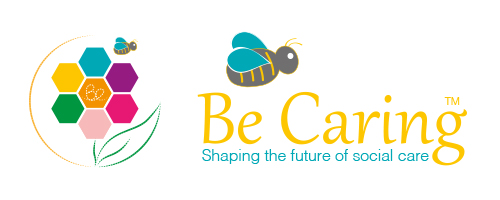
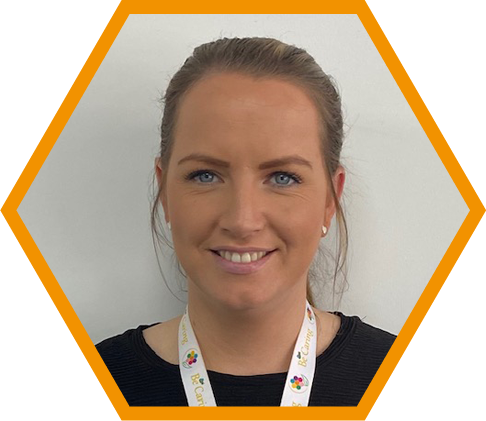
Billie Ransome
Service Manager
(Home Support)
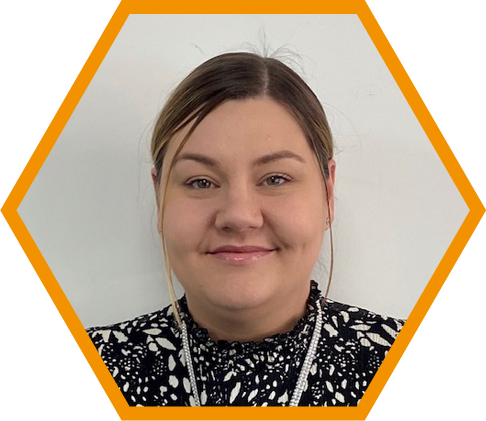
Nicole Lancaster
Service Manager
(Complex & Palliative)
Our Vision and Leadership
“We both moved to Be Caring in February 2020 and can honestly say I have never been made to feel more comfortable and valued at work. Our care teams are dedicated, hardworking, compassionate and caring. Every single Care Worker puts 100% into their job role. Colleagues have gone the extra mile working extra days and shifts so that we could keep the least amount of care workers attending a care call as possible. As new Service Managers for Be Caring – coming into the service at such a challenging time – we can only commend the team on their outstanding care, dedication and approach to the challenging situation that is Covid-19.”
Overview
Be Caring have been delivering care across Tyneside for over 14 years, provide a range of care and support services to people in their homes and in supported living settings. This includes care and support for adults who have personal care needs, those living with Dementia, those with more complex health conditions and supporting those with End of Life care. Nearly 300 colleagues deliver more than 7,500 weekly hours of care and support every week to more than 380 people living in Newcastle, Gateshead and North Tyneside.
Metrics and Stats
People being supported
Colleagues who deliver the care they aspire to
Hours of care and support delivered every week
Number of colleagues
Colleagues that would recommend us as a place to work
Achievements
The previous 18 months have brought about many changes and successes including: a planned CQC inspection with Good rating, a restructure of the Management Team and welcome arrival of Jackie Guncan (Operations Manager), re-tender and award of North Tyneside homecare services and award of Augusta and Holmes Dementia Care bungalows.
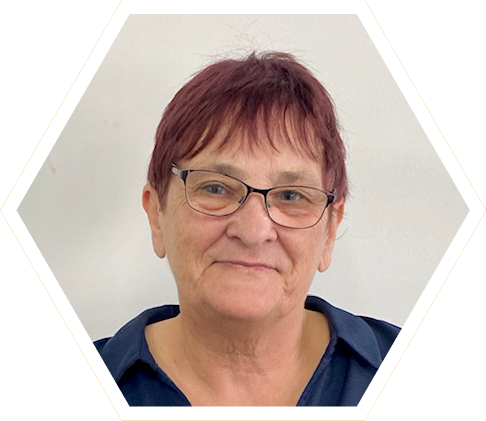
Meg Halliwell
Service Manager
(Dementia Care Bungalows)
“I’d like to give a big shout out to all of the fantastic colleagues who work in the Dementia Bungalows Service – they are a truly amazing team. During Covid-19, colleagues from both Augusta Close and Holmes Close have cared for and supported all service users, and each other. At the beginning of the outbreak, one gentleman was suspected of having the virus but was not admitted into hospital. Throughout the pandemic, our Care Workers have worked tirelessly and sacrificed their family lives to ensure he, and the rest of our service users, were cared for with compassion and dignity.”
We have 68 Care and Support Workers supporting 33 people with dementia across 2 sites, with 5 bungalows at each site, and up to 4 or 5 residents in each bungalow. Ordinarily, the individuals living in these bungalows are very sociable, making use of the extensive gardens (at one site) and participating in group activities, being involved in wider community activities (prior to Covid-19), such as day centres, luncheon clubs and going to a local café, and enjoying time with their families.
In response to Covid, we organised Care and Support Workers into 5 distinct ‘support bubbles’, with each ‘bubble’ supporting identified service users living in specific Bungalows. As with LIFE, the Care and Support Workers organised themselves, covering for each other through absence periods, working additional hours, being flexible, and ensuring that only those in their ‘bubble’ worked and supported those individuals.
Initially, due to panic buying and potential food shortages, ordering food shopping online became a real challenge. Food items were limited, and this meant multiple orders and shopping trips to ensure we were able to buy the food our residents wanted and needed. As a temporary measure, we employed Dennis for 10 hours a week, to co-ordinate this task. Despite being temporary, his service has proved to be invaluable and Dennis is still working for us.
Above and beyond this, our team implemented additional measures to make sure people were safe and had time for fun and enjoyment by:
Celebrating special occasions Day separately in each bungalow including birthdays and VE, decorating homes with bunting
Purchasing large ‘garden games’ including Connect 4, Coits, Skittles and dominoes
Organised contact with families through windows as well as phone calls
Care in the Community
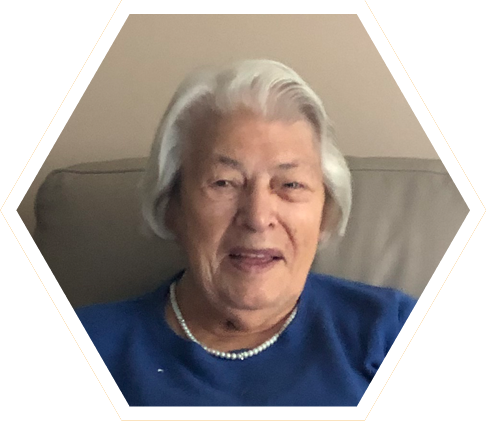
Betty
Service User, aged 97
“This awful virus – It’s a bit of a problem…You’ve got to be very careful. That’s the only attitude you can take. I’m luckier than most people in a way. Family makes a big difference.”
Just now we can only have the carers coming in and just a couple of members of your family, but not at the same time. Fortunately, I’m very lucky as my son comes on a Monday and does the shopping, and then my daughter does lots of things for me. I have four grown up grandchildren and I don’t see them as much as I used to because they can’t come. That’s a bit of a shame.
Seeing my husband, that’s another thing that’s changed. Because he’s in a care home and they’re closed to visitors, so where my family used to take me down to see him, I can’t go now. I spoke to my husband over a video call though. One of the staff at the home helped, as my husband’s deaf and he’s losing his eyesight. It was lovely to talk to him face to face. That cheered me up a bit, it was better than just phoning to see how he was, but it’s still not the same. It’s not their fault either, it’s the precautions to keep people safe. But it’s fine. I haven’t got to worry about him they say!
This awful virus – It’s a bit of a problem. The carers wear their masks and everything, and I’ve had my flu vaccination this year. Older people I think have stayed in. I’ve not gone anywhere where you might catch anything. So, if it’s going to go on longer, which I’m afraid it will do, I’m just going to have to put up with it! You’ve got to be very careful. That’s the only attitude you can take. I’m luckier than most people in a way. Family makes a big difference.
Some days I feel a bit fed up, but otherwise it’s just the same for everyone isn’t it? I have a bit of a walk up and down the corridor, I’m alright in my own flat as I have walking aids, I can’t walk on my own, but I get a little bit of exercise to keep my legs right and if there’s anything decent on the TV I watch it. And I read a lot! I don’t class myself as old though, because if you think you’re old you are.
I just get through things, it’s no good complaining. For years, my family laughed at me because I always used to take a couple of years off my age. My daughter said, ‘it’s taken you ages to get to 80!’ I don’t know why, touch wood, I’ve lived so long. I think it’s because my grandchildren have kept me young with a different outlook. I like to hear their conversations and what they’ve got to say to me. And they’re all very concerned to see if I’m alright. I’m lucky, because a lot of people haven’t got that, so there you go. That’s the way you’ve got to look at things. I think they’re a comfort when you get older, it’s company for you a little bit. The same as the carers. When the girls come, we have a little bit of talk, it’s someone to talk to and cheer you up.
Our Priorities
PROVIDER OF CHOICE
Over the past 6 months, we’ve undergone a significant re-structure of our Tyneside leadership and management team. which has seen us welcome some exceptional and experienced people. The team is settled and is working hard to ensure the highest standards, applying and embedding rigour to our co-ordination and quality.
OUTSTANDING CARE
We will achieve CQC Outstanding in at least one Key Line of Enquiry (KLoE) at our next inspection
We’ll continue to maintain our high performance and priority focus on care quality, demonstrated by our compliance metrics. We’ll continue to evidence, that as a service, and as a management team, we promote person-centred care and support our Care Workers to know people’s preferences, champion choice, flexibility and control, and act promptly to respond to need. We’re confident that we will achieve at least one Outstanding KLoE and can already demonstrate, with evidence, the ways in which we have the characteristics of an Outstanding service, for example, we:
- Use our data, evidence and expertise to make improvements
- Our colleagues are exceptionally kind and compassionate, going above and beyond to exceed expectations
COMMUNITY PARTNERSHIPS
We will bring employee-ownership to life with our colleagues in Tyneside
We’re already rolling out our colleague recognition, our monthly Above and Bee-yond Awards, in which colleagues nominate each other; 3 people will receive the Above and Bee-yond Award and receive a £30 gift voucher, which will be matched with a donation to a local charity (still to be determined, following colleague voting). The Awards are the foundation of empowering our colleagues to support each other for all the positive work they do, and will be enhanced by further developments including; local Voice Communications Champion roles and a Voice Improvement Champions (names not yet finalised) – who will promote colleague engagement and feedback (Communications Champions) and service user engagement and feedback (Improvement Champions). We’re testing and refining these roles before scaling the programme and adapting to reflect local needs at our other service locations.
SUSTAINED GROWTH
We will continue to attract and retain talent, helping us to consistently deliver high quality care across 3 service areas.
Over the past 9 months, care delivery within our Home Support and Complex and Palliative services reduced throughout the Covid period, but we are seeing a turnaround. Our key priorities over the next 6-8 months lie in maximising existing opportunities within our current contracts, building and developing stronger relationships with Social Workers, Case Managers and our commissioners. We want those working with us to view us as a trusted provider and that those who receive services know they’ll get the best care and support that is co-designed and outcomes focused from the start, and that the quality will be maintained while we consistently deliver 9,000 hours of care and support every week, supported by strong recruitment and retention.
Our Colleagues: Meet Viv
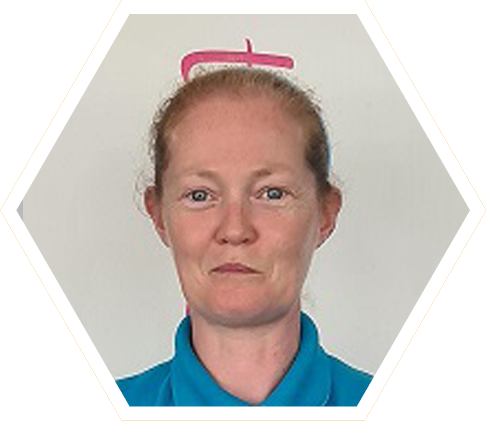
Viv Curtis
Care Worker
Started February 2020
“If we can make that time with them special, that for me is what it’s all about. Sometimes people just need to talk, have a chat, know you’re really there for them and that things are going to be OK.”
I’ve worked in Home Care for 5 and a half years now. I’ve always been a people person and liked helping people and animals. When I was a kid, I’d dress my cat up in baby clothes – I’d just mother everything!
I worked in the pubs for 16 years as a manager and had done some care work before that, though it was in residential care homes. Now that I’ve returned to care, I realise I’m far more comfortable with Home Care – having one on one with someone in their own home. There wasn’t a lot of time to talk to people in the care home.
Embrace it, come into it, try it. For me care isn’t just a job, it’s a vocation. You do it because you want to, because you care for people.
When I train someone new, I can sense by the way they interact with a person if they’re going to enjoy it. I always say, ‘go into someone’s house and talk to them, don’t be silent.’ Some people are shy at first – any new job’s nerve wracking – but most go on to love it.
I tend to take them in to someone’s home, let them introduce themselves and break the ice. Some people are terrified, bless them, as they’re going into a stranger’s house – they don’t know the person and have all these technical things to remember. I find it’s best to step back a little bit and let them do as much as they can by themselves. Obviously, you’ve got to guide them, but without overloading them. I teach them all the meds, the paperwork, show them everyone’s routines and where things are kept. It’s a lot for people to take in, so I tend to step back a little and say, ‘you lead a little bit, I’m there for you.’ I just guide them because it’s the interaction with the service user they need. If they feel comfortable, they’ll do more.
Everyone worries about the medication side of things. Some people have very complicated medication. It’s always the hardest side to care.
When Covid-19 first happened, people were very scared. They’d often start crying when I walked in, saying ‘I don’t want to die.’ Then it changed to having to get their head around not going out and not being able to see their families. Now, I think they’re resigned to the fact things aren’t good, but they’re better than they were. People are still scared though.
It’s hard because we can’t cuddle people right now, and some really need that. One lady has been in tears at not being able to have that human contact. Every time I go in, I say ‘whatever’s going on out there, is happening out there. I’m here for you 100%. My time’s your time, whatever you need, whatever you want.’ Knowing that we’re there for them, that’s what makes the difference. If we can make that time with them special, that for me is what it’s all about. Sometimes people just need to talk, have a chat, know you’re really there for them and that things are going to be OK.
I think care workers have coped really well, making sure they’re wearing full PPE and following the safety guidelines. The biggest battle has been reassuring people that we’re safe, they’re safe, and that we’ve minimised the risk.
We’ve also tried to make sure their families are happy and know we’re doing all we can. I think it’s more reassurance that’s needed – that we’re trying to do things right for them. Some families are really involved in their family’s care. They want to know that their needs are being met – that we’re going in, getting their shopping in. It’s important for their peace of mind. I’ve one lady who had a fall and has a bad back. Her daughter was worried and wanted to know we were there to do everything we could for her Mum. It’s reassuring for her to go home and know that her Mum’s being looked after.
I constantly want to learn new skills. I want to know anything and everything there is to know about care! I’ve already said I want to do my NVQ level 3 as well as a week’s training course on dementia. There are different forms of dementia, it’s a very individual thing. It all depends on the person and how it affects them.

